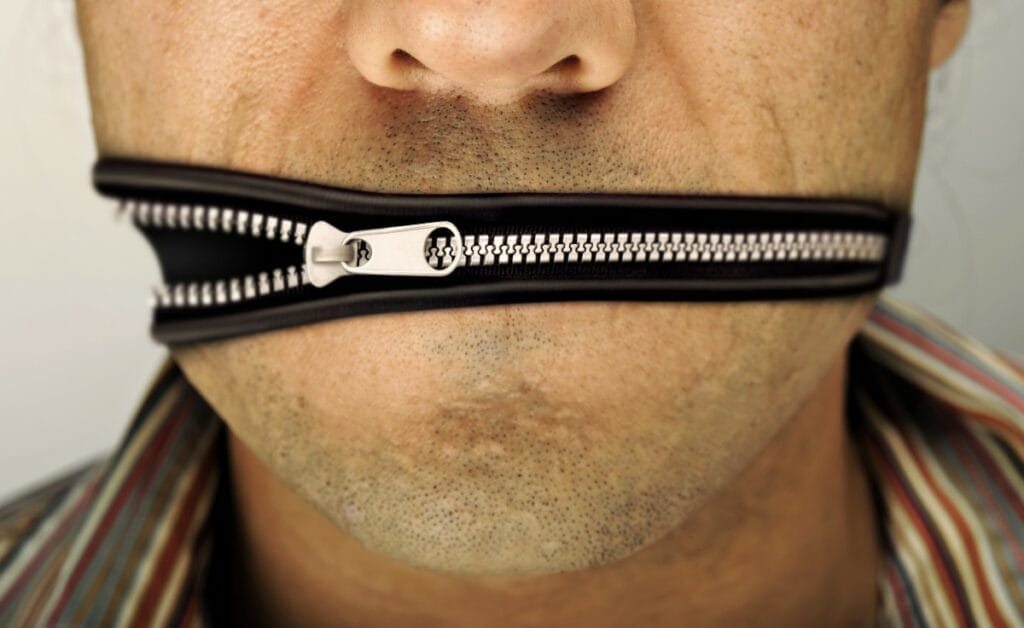The American tradition of free speech runs up against rage at colleges, but there are signs of hope
It was startling, but surely not surprising, when protesters disrupted an online discussion by a panel of black conservatives at the University of Wisconsin-Madison last month.

“This happens all the time,” said a panelist, Wilfred Reilly. “Any time you try to do a campus speech, you get crowds of people trying to fight you.” Organizers cut off the Zoom feed after one of the protesters began self-pleasuring on-camera. “He could also use some testosterone therapy,” Reilly quipped.
It was an in-the-flesh illustration, so to speak, of surveys that show a diminishing tolerance for free speech. A poll in September found that nearly half of Democrats felt free expression is permissible “only under certain circumstances.” Bad enough that half of Republican respondents felt government should restrict “hateful” words on social media; worse was that three-fourths of Democrats did.
Such sentiment could be seen in the edge-of-panic huffing at UW-Madison last month over an itinerant preacher, Cindy Smock, who brought her TikTok-famous “Ho No Mo Revolution” to a sidewalk outside the library. She urged passersby to give up libertine sex and drunkenness, salting the message with references to Cardi B’s 2020 hit song about bodily fluids.
This, the head of a campus “sex positivity” group said to a campus newspaper, “marginalizes” students who like having lots of sex. It was harmful, she said. A student government leader told the same reporter that for authorities to not silence Smock attacks students’ “ability to exist on this campus.” Another campus commentator called for Smock to be shouted down.
That would mirror how UW-Madison protesters treated a speech last October by commentator Matt Walsh, whose documentary “What is a Woman” included interviews of transgender rights activists stumped by the question. That speech went on despite raging protests with activists eating pages from a purloined Bible and chanting, “F*ck your system, f*ck your hate, we are not here for debate.”
Don’t like? Don’t listen.
They’re saying no to debate and, what is more, no to the customary American way of living in a free society where people say things you disfavor: not listening. It’s not hard. Don’t sign up for the webinar if you can’t stand black conservatives calmly discussing policy. Don’t stop by the woman preaching sexual continence if you don’t want to hear it.
Or offer a convincing alternative: Does a group named Sex Out Loud really feel it cannot outdraw puritan preachers on campus?
Maybe not. Among leftist students and faculty, “the fragility is astonishing,” said James “Duke” Pesta, an English professor at UW-Oshkosh. The more you surround yourself entirely with those who think like you, the less practice you have at debate and the more threatened you are by dissent, he said.
This would explain the wish for authorities to purge the sidewalks and social media of dissent. It’s not that someone doesn’t want to hear black conservatives talk. It’s that they don’t want you to hear them talk. You might listen.
The bad and the hopeful
There are two conclusions to draw, as I see it. One is grim: If a shut-up ethic now prevails among leaders of student government, it soon will be incontestable in grown-up government. As UW’s Thompson Center on Public Leadership found in a 2020 survey of undergrads, about 40% of your future colleagues and leaders felt the government should silence “climate change deniers,” for example.
It’s why campus antics matter, why it’s good that Pesta and a bipartisan group of Wisconsinites have organized Free Speech for Campus, which bills itself as a grassroots attempt to defend what its name says.
Pesta reckons that a minority of students are committed progressives, while most are apolitical. But apoliticals and even conservatives, he said, “talk like progressives,” pressured into treating words as harmful. “It’s like they’re walking in a minefield,” he said.
The data support him: A supermajority of conservative students in a UW system-wide survey finally released last winter said they were pressured by an instructor to conform to an ideological view, while only a fifth of leftist students did. Perhaps conservatives detected that among their “very liberal” classmates, 58% felt certain viewpoints could be seen as an “act of violence.”
But there’s a cheerier conclusion, too: The opponents of American constitutional liberty, traditionally understood, have no arguments left, only masturbatory gestures of insult.
“It was almost childlike,” said Robert Woodson, one of the interrupted black conservatives, later. Pesta noted this, too: Those who oppose free speech, and the other individual liberties it supports, have never had to cope with serious questioning and so are left with no answers, only puerility.
“There is no cogent ideological basis for their beliefs,” he said. Their rage signals their emptiness: “They can’t convince you what the truth is, so they damn well are going to force you to parrot what they say.”
And that’s not a winning message.
Patrick McIlheran is the Director of Policy at the Badger Institute. Permission to reprint is granted as long as the author and Badger Institute are properly cited.
Submit a comment
"*" indicates required fields




